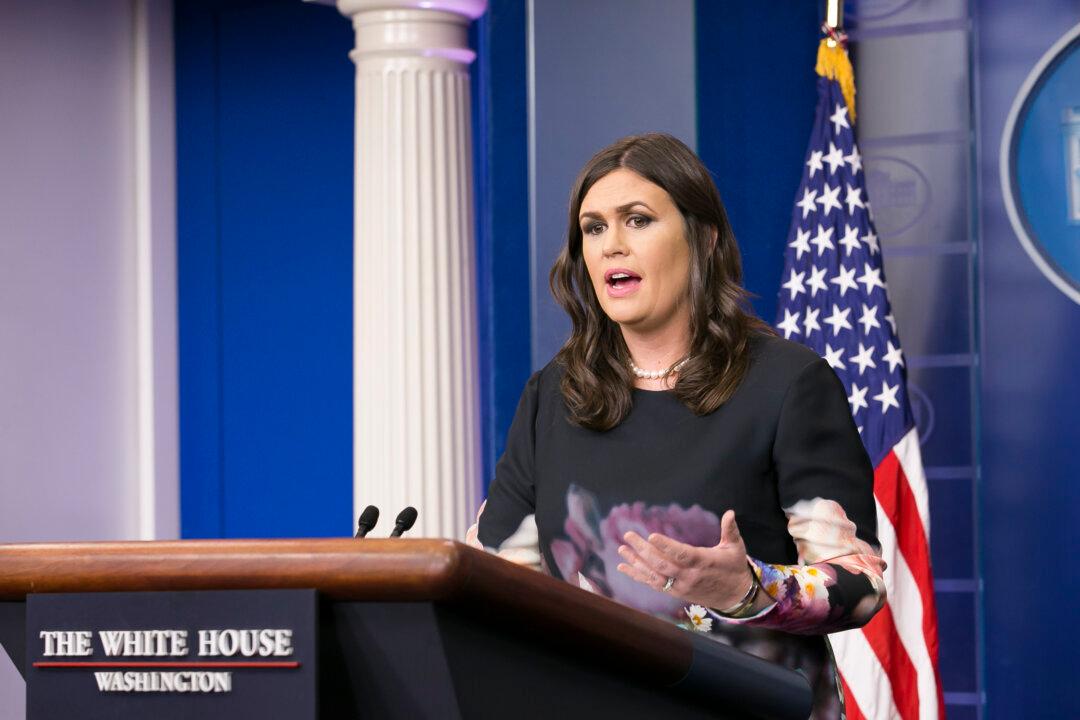The White House said on Friday that it certainly does not support Russia’s decision to veto a U.S.-drafted resolution that would have renewed an international inquiry into who is to blame for chemical weapons attacks in Syria.
“We do hope that moving forward, they want to get on board and work with us on this. But at the same time, this isn’t something that we support their decision on,” White House Press Secretary Sarah Huckabee said.




